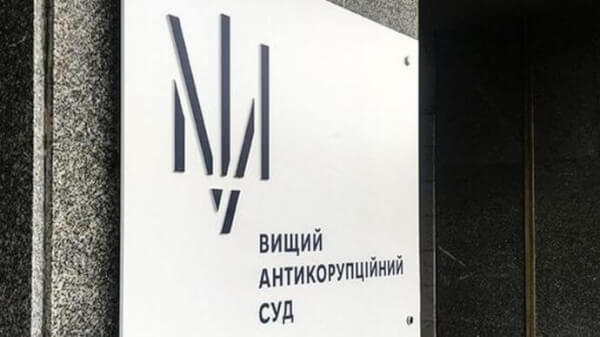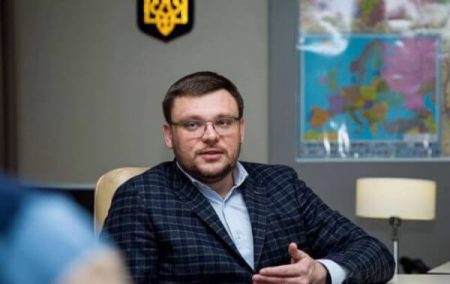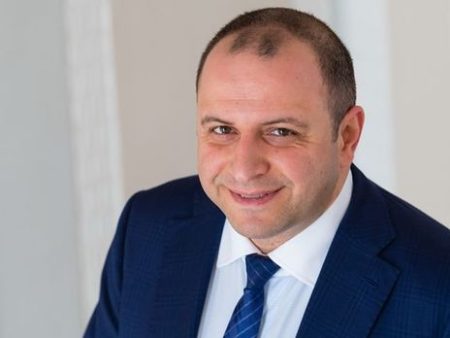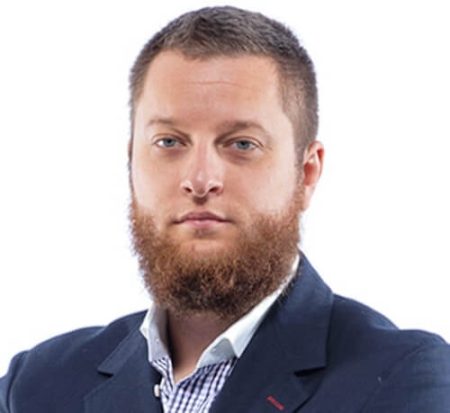“The Case of Generators”. Vasily Lozinsky
Firstly, this case does not specifically involve the generators that most people think of after reading the sensational headline. Such as upstairs or similar – “bribe for generators”, “case of the purchase of generators” – the media and social networks were filled with, starting from the evening of January 21, when it became known about the detention of Vasily Lozinsky by NABU employees, writes Tizhden.
At that time, Lozinsky served as Deputy Minister for the Development of Communities, Territories and Infrastructure. This is a government giant, formed in early December after the merger of the Ministry of Infrastructure and the Ministry of Regional Development. The detained Lozinsky was the first person (acting minister) in the Ministry of Regional Development and formally the second (first deputy minister) in the new mega-ministry. Alexander Kubrakov, previously the head of the Ministry of Infrastructure, became the head of the department. Actually, it is not so much about the merger, but about the accession of an additional part to the institution under the leadership of Kubrakov. The official website of the supposedly new department is served by the old page of the Ministry of Infrastructure, where the functions of the once influential Ministry of Regional Development were not even added in the “About Us” section.
This extensive diversion about the structure of government is not directly related to the case, which was heard in the Supreme Anti-Corruption Court during January 23 and 24. But call it “journalistic flair” or something else – it suggests that an explanation about the ministry should be in this text.
So, generators – in the sense of gasoline or diesel boxes, similar to those standing under shops – this is only a small part of this story. The “generator case” began in July, when Prime Minister Denis Shmigal announced on the allocation of UAH 1.4 billion for the purchase of equipment for the heating season. At that time, Russia had not yet begun shelling the energy infrastructure of Ukraine, but the thesis that they would begin with the onset of cold weather had already been spread. Subsequently, the amount, which approximately coincides with the named one, will be spent due to the purchases of a research institute with a fancy name familiar to Ukraine: “Ukrndivodokanalproekt”. This institute was under the jurisdiction of the Ministry of Regional Development, where at the time of Shmyhal’s statement, Aleksey Chernyshev was still chairing (he resigned on November 2 to head Naftogaz).
“Ukrndivodokanalproekt” used the funds by spending seven purchases. About UAH 94 million was spent on diesel generators. The majority of the money was spent on mobile boilers (about UAH 800 million), water purification equipment (about UAH 226 million) and trucks for transporting this water (about UAH 243 million). Contracts with tender winners were concluded on November 10 (five), November 17 (one for the largest amount) and December 9 (another one for small UAH 28 million). The winners were: EGP LLC for mobile boiler houses, Techno Train LLC for water treatment plants, Stroydormash LLC for trucks, Difrano Union LLC for water filters and M.B. and LLC “Ultra-Maria” for diesel generators. Thus began the “Case of Generators”.
Lozinsky was aware of the criminal case but still continued to act?
At the High Anti-Corruption Court, they discussed what action to take with Vasily Lozinsky, a former deputy minister who was being considered for a measure of restraint after being dismissed by the government. The proceedings were quite interesting and not just a regular hearing.
According to a release from the NABU press service published on Sunday morning, it was stated that Lozinsky was part of an organized criminal group, there were overpayments of UAH 280 million under the contracts (though NABU claims it's actually 1.68 billion UAH), over 150 NABU employees were involved in the operation, and the legal qualification was part 4 of art. 368 and part 5 of art. 191 of the Criminal Code of Ukraine.
According to SAPO prosecutor Oleksandr Omelchenko, the case was initiated on September 26 by three NABU detectives, and more staff were later involved due to the need for investigative actions in different cities. The prosecutor mainly relied on data collected during covert investigative and search actions such as listening, photo, and video recording.
In short, it's alleged that Lozinsky conspired with several entrepreneurs to win tenders, with an 8% 'kickback' or bribe from budget money. However, the former director of Ukrndivodokanalproekt, Oleksandr Ogloblya, opposed this and considered the companies unreliable, leading to inflated prices. Despite this, Lozinsky allegedly persuaded the new director to make a deal, and the contracts were concluded shortly after. Lozinsky is said to have received his reward after the agreement was fulfilled and the 'Generator Case' had begun.
During the two-day process, printouts of tapped conversations of various individuals involved in the case were read out. Some details were highlighted among a range of remarks, some of which may have been incomprehensible to an outside listener. The prosecutor also read obscene language at times. Some of the details related not only to the case, but also raised everyday philosophical questions such as the relationship between a bureaucrat and the system.
According to the investigation, Lozinsky knew about the criminal proceedings even before the purchases were completed.
– Let’s all sit down. And everyone who … And our most important thing … – Lozinsky allegedly says in a conversation with Oak.
“I understand,” Oak allegedly replies.
“Our most important thing is implementation, but if we run, then we all run,” Lozinsky allegedly continues.
The prosecutor says the conversation happened on October 27, before the contracts with companies were finalized. The prosecutor claims that Lozinsky knew about the investigation and was getting ready to escape if something happened. The main question is: is it normal for someone in the Ukrainian state system to risk their status and position for an 8% kickback in a sensitive energy purchase during the war?
In another place, it's clear that Lozinsky is allegedly worried not only because of NABU. The date of this conversation is not mentioned, but the content is important.
— I’m speaking frankly, we will look for options on how to complete this project, — Dub says immediately after or shortly before being appointed head of the institute.
– We, too, cannot be “if we were not something.” Firstly, they will not understand politically, because they even … (from) the prime minister said that we have purchased. As soon as I heard, you know, I fell under the table, – says Lozinsky.
“And I heard it on TV,” adds Oak.
If this conversation really happened, it also provides insight into the work of the Ukrainian authorities in the early months of a full-scale invasion. Possibly, the prime minister either doesn't know that the planned equipment has not been purchased yet, or is assuring that it's already there. The minister is concerned about political responsibility and wants a 'result', but (if the court agrees) doesn't forget about their own pocket. Whether it's fear, responsibility, desire for profit, or careerism – only the court will show. That's why such processes should be observed rather than announced on social networks when they're just starting.
There are also interesting hints for the future. Not only Lozinsky, but also several other individuals involved in the same story, have been placed under precautionary measures in recent days. These are mostly the heads of companies that won tenders mentioned earlier. Not all names were mentioned during the hearings on Lozinsky. The most frequently mentioned were EPG, Buddormash, and Techno Train.
The prosecutor's office doesn't need to present all evidence during a restraint hearing, only what is enough to support suspicion and warning requirements. Therefore, maybe other names will be mentioned later. On the other hand, the prosecutor mentioned names whose role in the case has not been fully understood yet: Vyacheslav Medyanik (people's deputy of the Servant of the People), Rostislav Shurma (deputy head of the President's Office), Denis Kudin (first deputy minister of economy). Sergei Krivoi met with all of them – a man whom the investigation considers the key person involved in the scheme. He was arrested even before Lozinsky.
The Case of Generators: Important Questions and Background Information
As you may know, the court did not consider the prosecutor's arguments and instead of being arrested with a bail of UAH 50 million, Lozinsky was put under house arrest. Before that, the defense side presented several arguments.
First, about the likely bribe. According to investigators, Lozinsky received $400,000, but he didn't physically receive the money. The funds were transferred through a conversion center to Lviv, allegedly to Lozinsky's confidant Roman Kitner (who was arrested with an alternative bail of UAH 805,000). According to the prosecutor, the Ukrainian conversion center is somewhat similar to a medieval bank of the Templars. If you need to transfer unaccounted cash from Kyiv to Lviv, you should transfer the money to the institution's representative in the capital. Another representative in Lviv will transfer a similar amount to someone who knows the code word. Therefore, Kitner received the money shown in the photos published by NABU, and Lozinsky was arrested without cash.
Another question is about the qualification of the case. Lozinsky is suspected under Part 4 of Article 368 of the Criminal Code (Acceptance of an offer, promise or receipt of an unlawful benefit by an official on an especially large scale, or committed by an official in a particularly responsible position). Article 191, as it was in the NABU release, is not yet available. Also, Lozinsky was not suspected as a member of an organized criminal group, and this was also written in a NABU press release. The article under which Lozinsky is suspected provides for imprisonment for 8-12 years and confiscation of property. But, as the defense of the suspect notes, it also suggests proof that Lozinsky himself demanded a bribe and was himself responsible for the result. The investigation for two days did not provide evidence that Lozinsky demanded a bribe. And the final decision depended not on him, but on the director of the Oak Institute. Such is the “Case of generators”.
There is another article in the code – 369. It provides for the receipt of a bribe by an employee, but not his demand. This article is softer. She may even be punished with a fine. However, the prosecutor’s office did not declare such a suspicion.
This haste and the events that took place in parallel – in particular, the dismissal of key representatives of the regional bloc of the government and Kyrylo Timoshenko, who is responsible for the regions in the OP – still make us think about the purely political side of the matter. Ideally, this should not be the case, but there are no perfectly politically pure litigations. And yet, it is important to maintain a balance so that NABU, SAPO and EAC, which have suffered through years of political struggle, do not become, first of all, instruments for political decisions, instead of instruments for achieving justice.
Andrey Golub, translation Skeleton.Info



